Grove Farm Newsletter - March 2021 Edition
Kaua‘i may be facing its greatest challenge yet, resulting from the COVID pandemic, the ensuing islandwideshutdowns, and the loss of thousands of jobs. Today, businesses are struggling to stay afloat in anticipation returning visitors. Many of our friends, neighbors, and family members are unemployed. Island families are hoping to return to a life of normalcy soon – to be able to go back to work and provide for their families. The economic hardships and the emotional and financial stress have left residents in a world of uncertainty.
Kauaʻi By the Numbers
Kauaʻi’s COVID-19 metrics show 180 cases through February 21, 2021. There were 2 cases requiring hospitalization, one patient who needed to be on a ventilator, and a single COVID-related death. Kauaʻi should be lauded for its safe environment, yet we must also focus on those who are living through the crippling economic downturn that was unavoidable.
Our island’s dependence on the visitor industry cuts our economy much deeper with restrictive travel policies in place. Based on data from the Department of Business, Economic Development and Tourism (DBEDT), jobs in the Accommodations sector declined by -67%, while the Food Service sector saw a -28% drop. Many other industry sectors have experienced double-digit declines.
The data below provided by the University of Hawaiʻi Economic Research Organization (UHERO) highlights several key indicators.

For the most part, federal, state and county government jobs have not been affected. So, too, has the Pacific Missile Range Facility and all of the critical healthcare and medical jobs on island. Excluding those jobs would really show the extent of the unemployment situation in those sectors mentioned above.

The Kauaʻi Chamber of Commerce conducted a survey of island businesses, and 49% of the respondents said they did not expect their business to survive more than 90 days without a return in visitors.
The Economic Ramifications on Local Businesses
Many of Kauaʻi’s businesses are struggling to keep their doors open hoping that the visitor industry will be open before the situation becomes irreversible. Kilohana Plantation is well known for its luʻau, sugar cane train rides, and the popular Kauaʻi Rum Safaris. The historic plantation estate is also home to Gaylords Restaurant, Kōloa Rum Tasting Room, Cane Field Boutique, Clayworks at Kilohana, Banana Patch Studio, Kauaʻi Sweet Shoppe, Giorgio's Art Gallery, The Depot Shop, Zensations, Sea Reflections, The Artisans Room, and the Hawaiian Collection Room. Fred Atkins of Kauaʻi Kilohana Partners manages these businesses. Collectively these businesses once employed 168 local residents – pre-COVID, and is now down to less than 10.
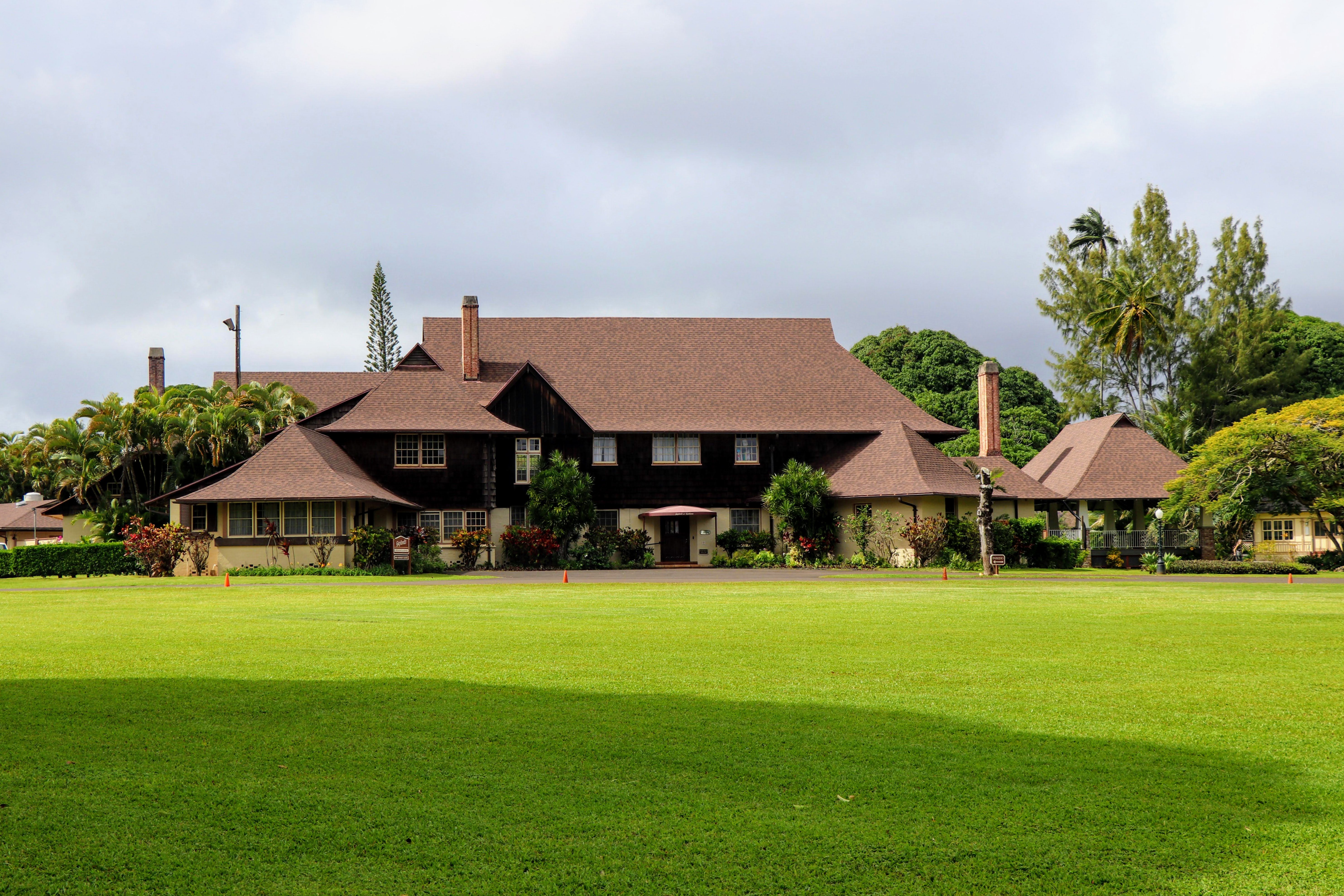
“Now is the time to get protocols in place, enlist in safe travels, and slowly open up again,” said Atkins. “The island is at about 13.5% hotel occupancy, and that’s not enough to reopen. We’ve lost four shops already and they’re not coming back.”
Atkins said that although the Paycheck Protection Program (PPP) loans have been make or break for most businesses, it’s not enough. He mentioned that it doesn’t cover operating expenses so most businesses are still losing money every day.
In an interview by Allison Schaefers of the Honolulu Star Advertiser, Atkins said economic conditions since the pandemic are “about as bad as it’s been since the beginning. Especially when you see it start to open up and you see there’s some light at the end of the tunnel. This has been kind of a dark period.”
Atkins is hoping that Kauaʻi can start to recover if we enroll back into the Safe Travels Program and people continue to get vaccinated.
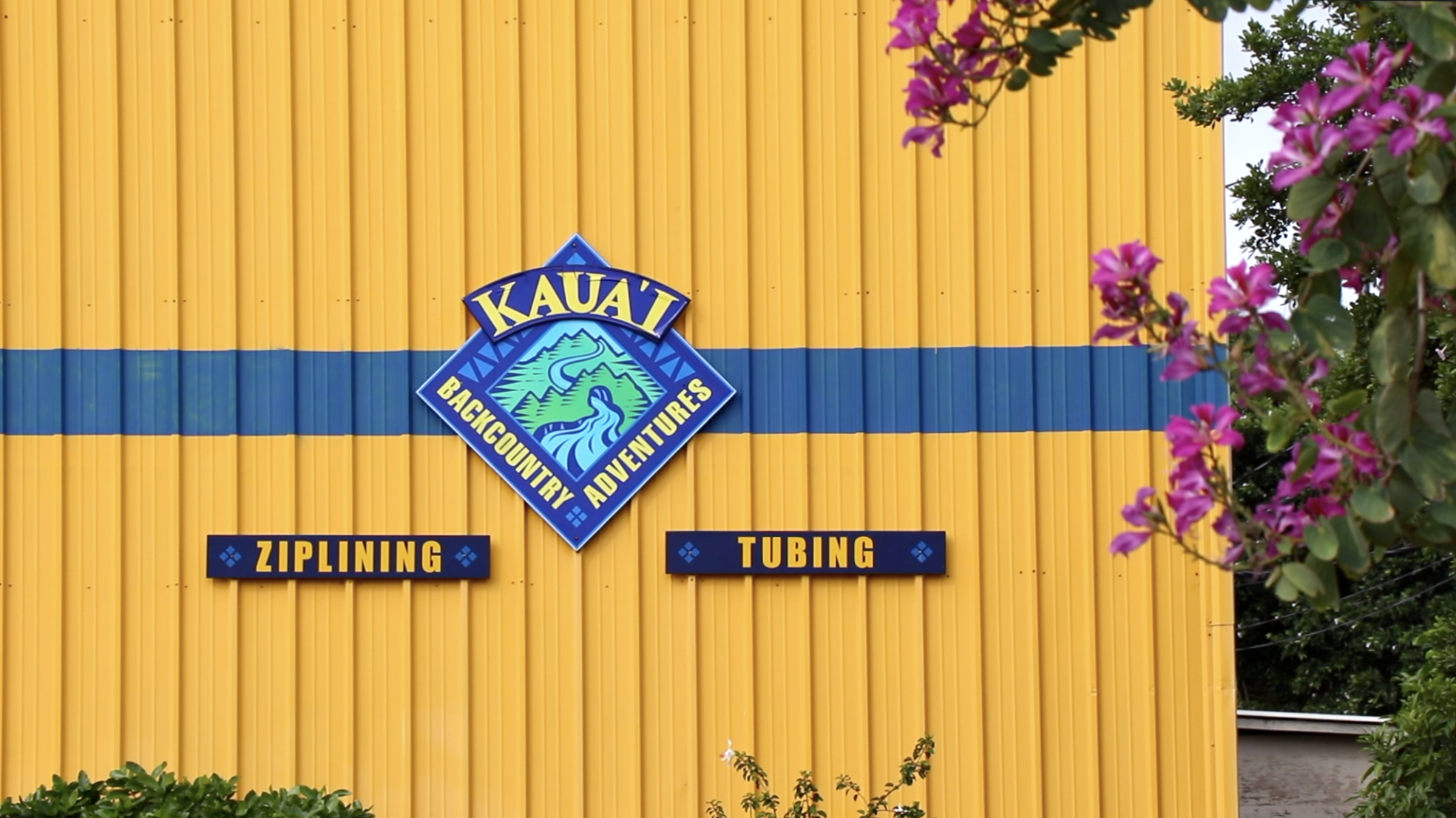
Kauaʻi Backcountry Adventures (KBA) has been a long-time partner of Grove Farm. KBA is well known for their floating tube rides along with their zipline and waterfall tours. Prior to the pandemic KBA employed 85 local residents – many between the ages of 18 to 27, including seasonal hires who were attending school full-time. More than just a job, these employees were taught valuable life skills, including the importance of professionalism, public speaking skills, and were given valuable experiences for their future careers.
“We haven’t been open since December and we were struggling even then,” said Sean Stogner, General Manager of KBA. “There’s not enough visitors to the island to be operating. We opened, shut down, opened, and shut down again. We want to make sure when we invest money into opening again, that the island stays open. We have 85 employees that are anxiously waiting to get back to work.”
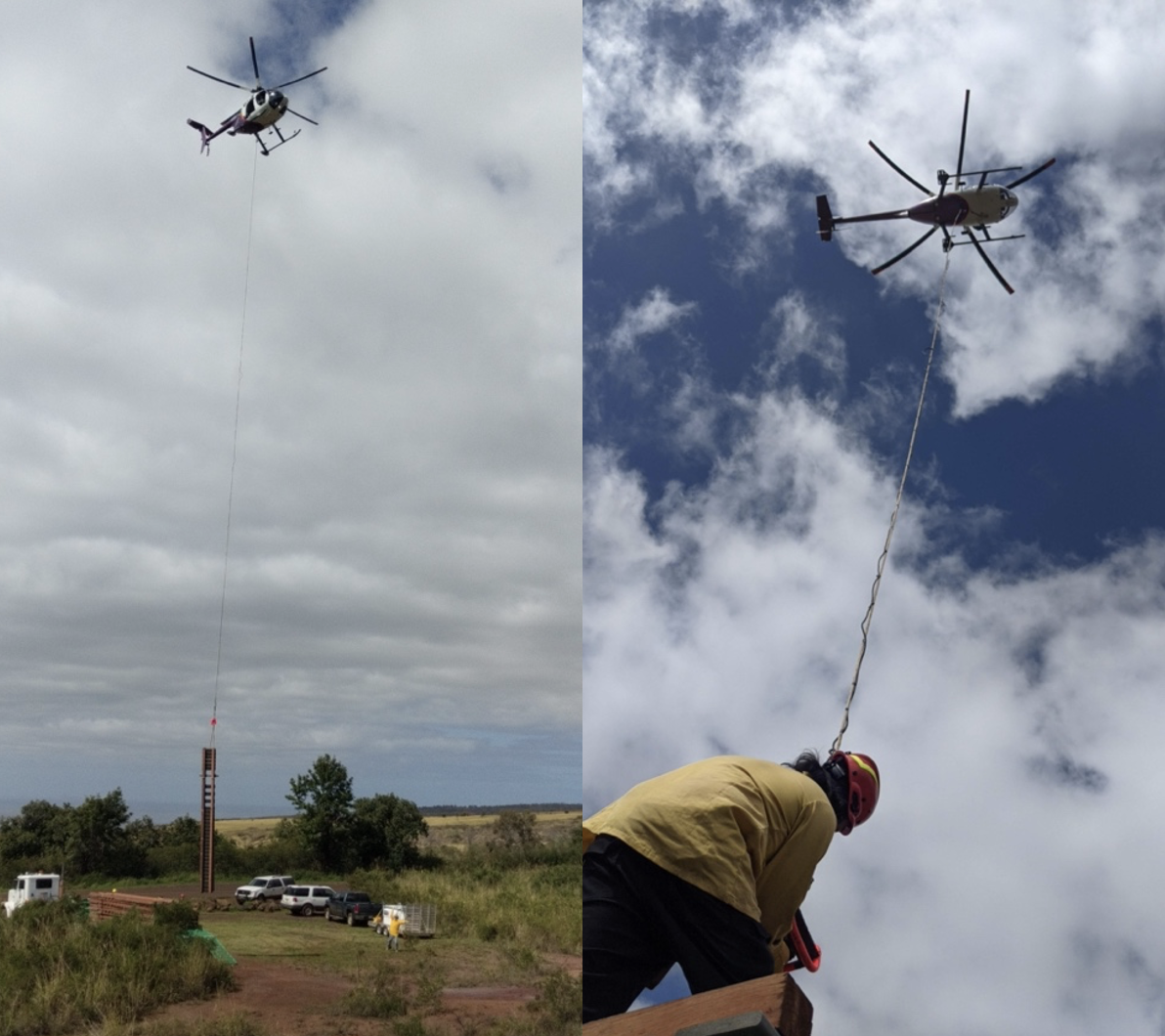
Jack Harter Helicopters has been in business on Kauaʻi since 1962. They offer helicopter tours and work with contractors and state and federal agencies for maintenance assistance. They volunteer with many local charities and assist the Kaua’i Fire Department with brush fire control. Jack Harter Helicopters employed 35 people pre-COVID and is down to only 20% of their prior workforce. "A lot of highly trained aviation mechanics and pilots don't want to hang around a situation with so much uncertainty," said Casey Riemer, Special Projects Manager of Jack Harter Helicopters. "Those people moved away, and the island lost that knowledgeable base of skilled workers."
Riemer also mentioned that when Kauaʻi was participating in the Safe Travels Program, they were generating about 30% of their average revenue. "We have a ‘scalable business model’ and were at a comfortable place with a skeleton crew around," Riemer said. "Then we reached a sudden halt on December 2nd. We're hopeful that we can join the Safe Travels Program again. The state, county, and even federal government need the tax base on the revenues that we and other businesses produce."
Stress and Isolation – Taking its Toll
Although we are only one year into the pandemic, the statistics on COVID-19’s impacts on mental health are staggering. Pre-COVID, mental health concerns were already on the rise.
On February 13th, The Garden Island newspaper published a report stating the impacts of COVID-19 are affecting the mental health of all Hawai‘i residents, but especially young adults and those whose household incomes are less than $50,000. A recent survey commissioned by the State Department of Health showed a solid majority, or 82% of those who participated in the survey, have experienced a mental- health condition at some point over the last six months. Slightly more than half, or 52%, of those say their symptoms began during the pandemic.
A February 2021 study by the Kaiser Family Foundation reported that 41% of adults are reporting anxiety or depressive disorder, up from 11% in 2019.
The impact on mental, physical and social health – affecting all ages – is a huge concern.
Where do we go from here?
To keep our residents safe, we must all behave unselfishly and prevent the spread of the virus by continuing to practice social distancing, wearing facemasks and getting vaccinated. Of equal importance is opening up our economy by following a statewide Safe Travels Program as residents need to return to work, rebuild their lives, and bring normalcy back to our island’s residents. Let’s not sacrifice health and safety. Let’s seek a suitable balance that addresses the physical health, emotional stress levels, and those who need to go back to work to provide necessities for their ohana.
For Our Youth
Kauaʻi Pop Warner Pop Up Movie Night
In December 2020, the Grove Farm Foundation made a $15,000 donation to Kauaʻi Pop Warner Football League (KPWFL). With KPWFL raising $5,000, the combined $20,000 was used to purchase a large inflatable movie screen with premium audio-visual equipment. The intent is to use to screen for movie night fundraisers and award ceremonies.
On February 6, the KPWFL board tested the new equipment with a movie night at the Puakea Golf Course. They watched footage from previous cheer competitions, and the new Netflix movie, Finding ʻOhana. The equipment worked well, and the league is planning the next movie night sometime at the end of March.
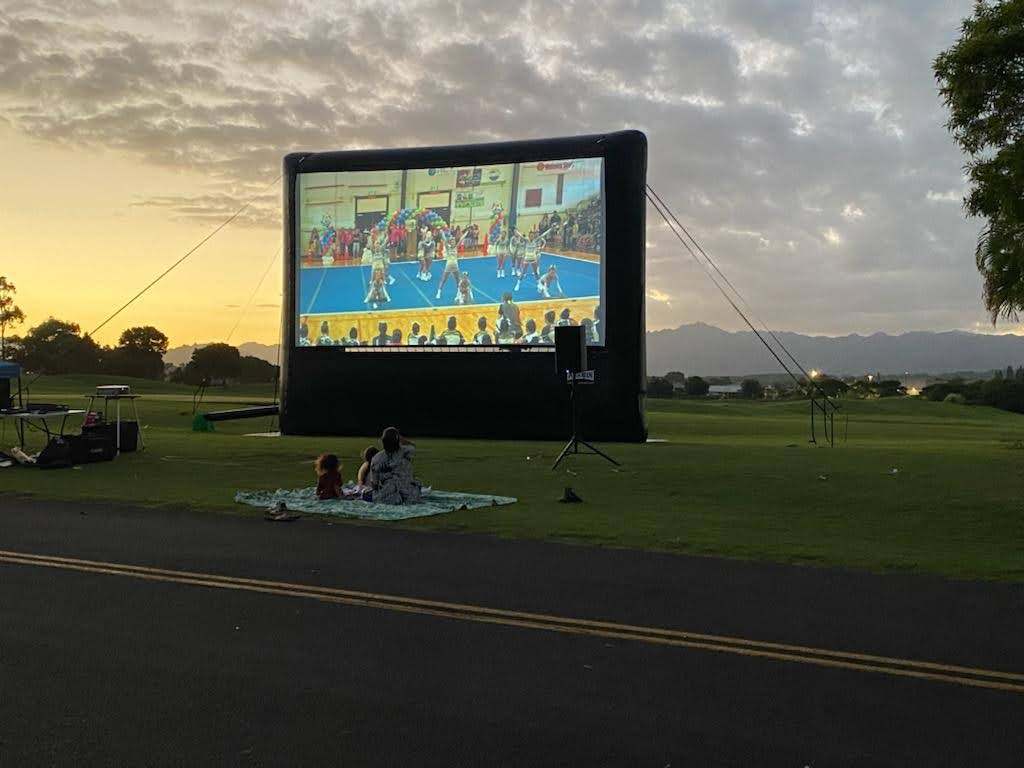
First Tee – Hawaiʻi at Puakea Golf Course
February 17, 2021 was the first class for a great group of Kauaʻi kids. First Tee – Hawaiʻi kicked-off at an opportune time when kids are in need of structured activities due to the many challenges presented by COVID-19 over the last year. First Tee will start off with a series of four classes as it aligns its schedule with other classes around the state. Beginning in April the program will run eight weeks with multiple times and sessions every year moving forward.
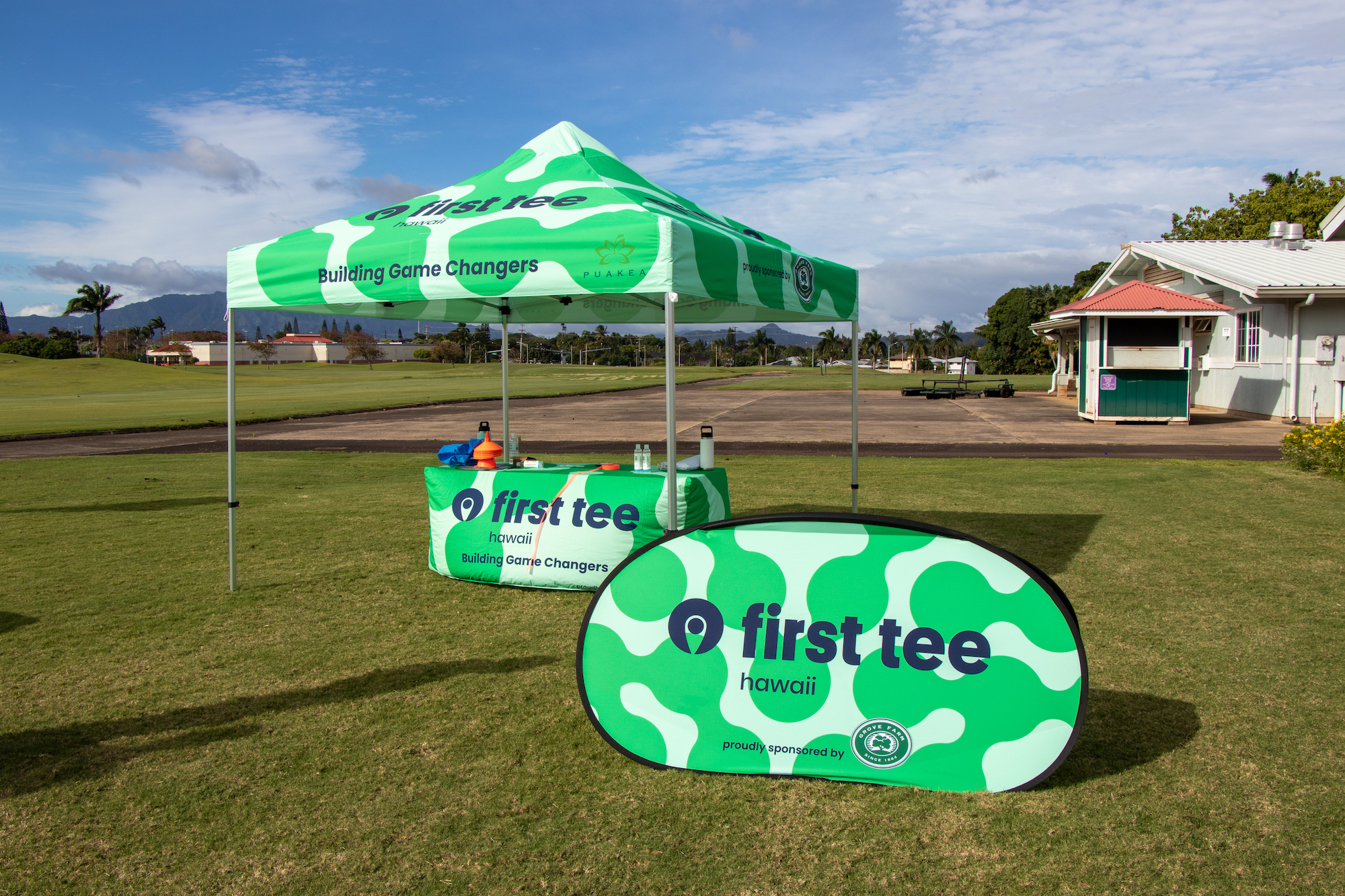
“Grove Farm is excited to partner with First Tee – Hawaiʻi to make the Puakea Golf Course the first location on Kauaʻi. First Tee – Hawaiʻi will bring tremendous opportunities to young juniors who are interested in the game of golf,” said Casey Watabu, Grove Farm Project Manager and Kauaʻi Junior Golf Association (KJGA)President. “First Tee – Hawaiʻi is structured to instill valuable life skills such as honesty, integrity, respect and sportsmanship that will positively impact each junior golfers’ character on and off the golf course.”
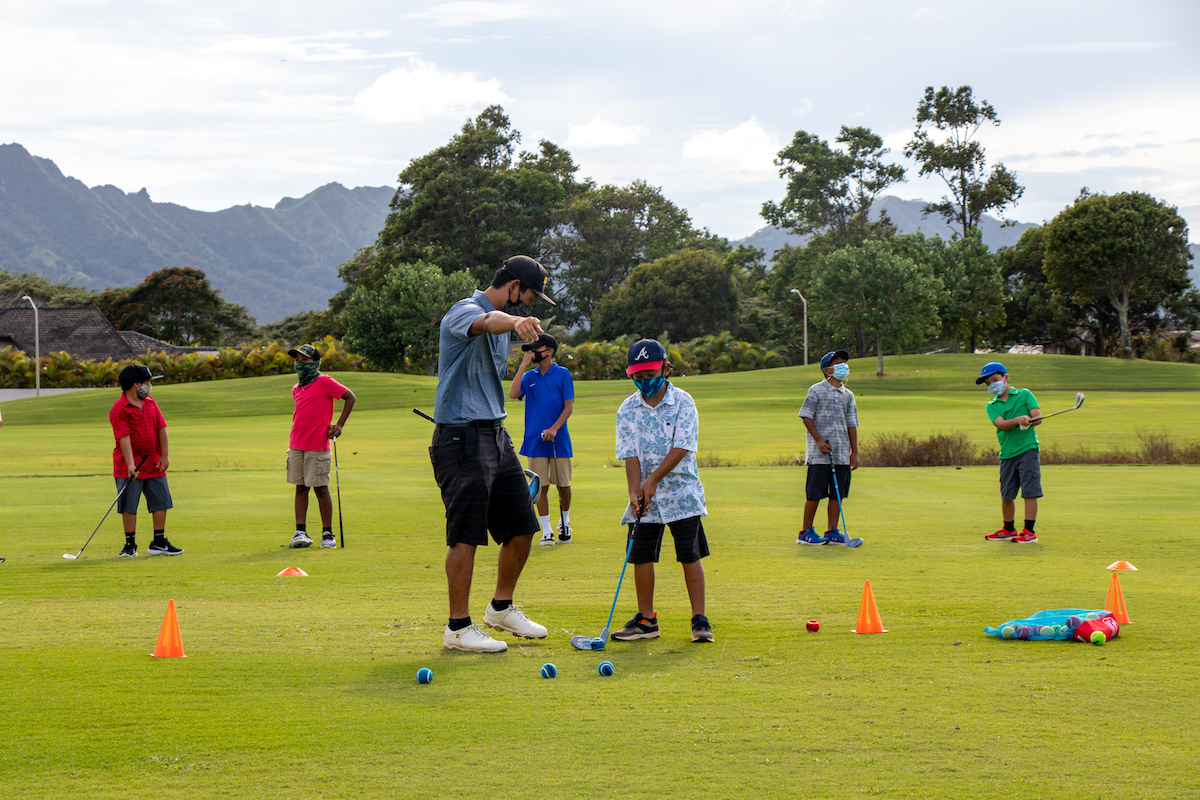
“Two of the three lead coaches are alumni of the Kauaʻi Junior Golf Association and these kids will love learning from Ken Miyata, Taryn Taguma and Ryan Toole.” said Matt Rollins, Executive Director of HSJGA and First Tee – Hawaiʻi.
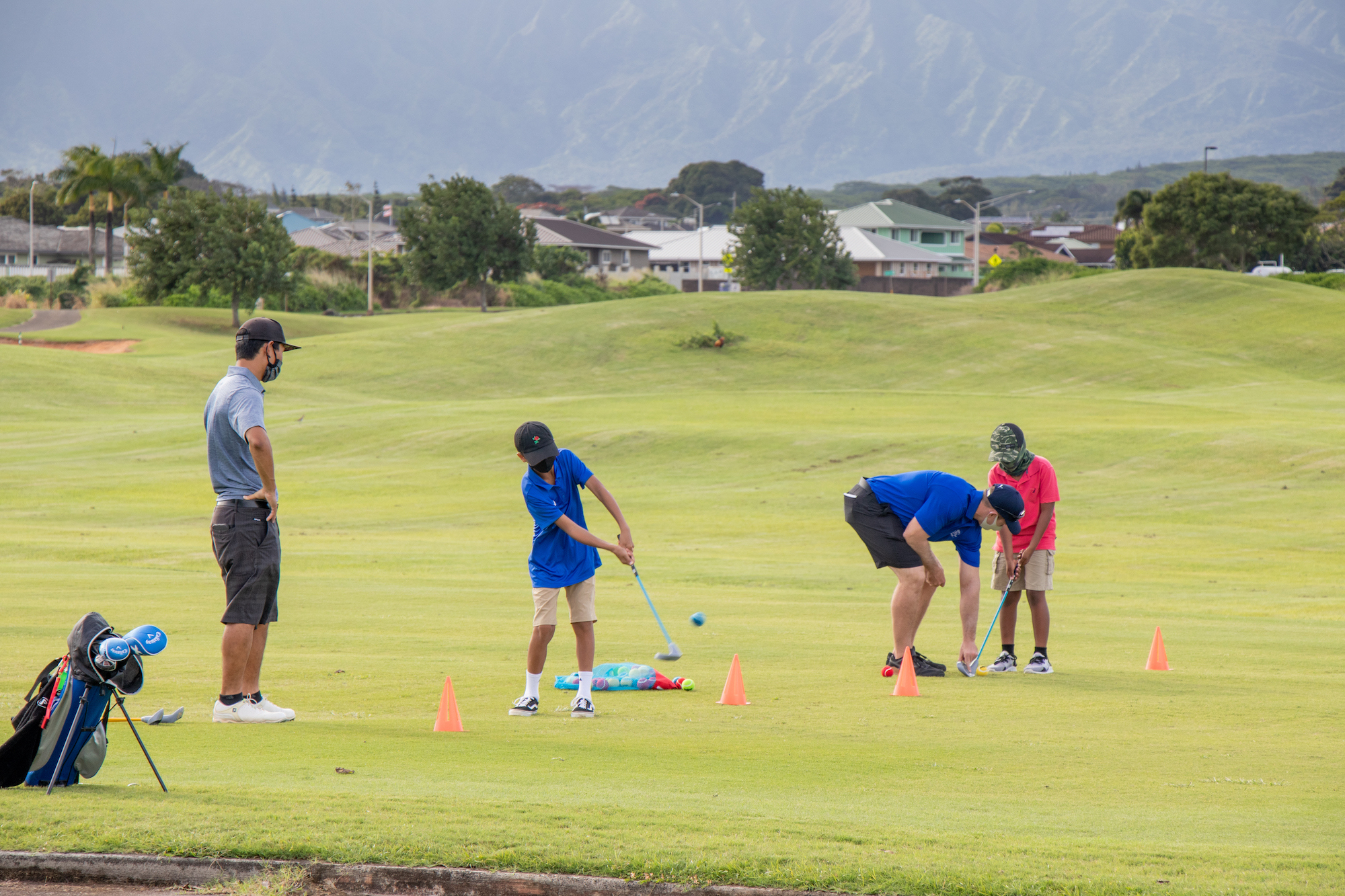
For more information about First Tee – Hawaiʻi visit www.firstteehawaii.org
